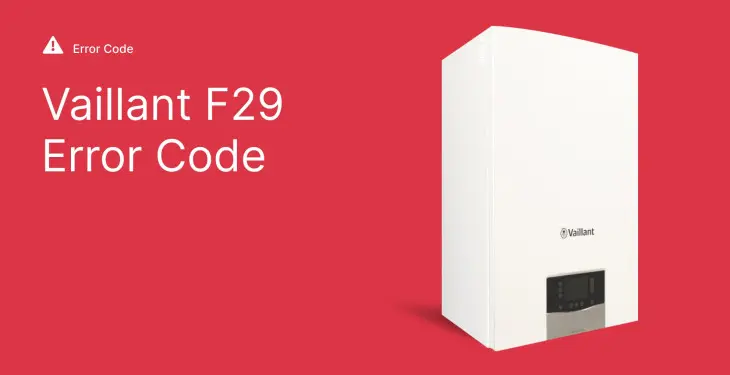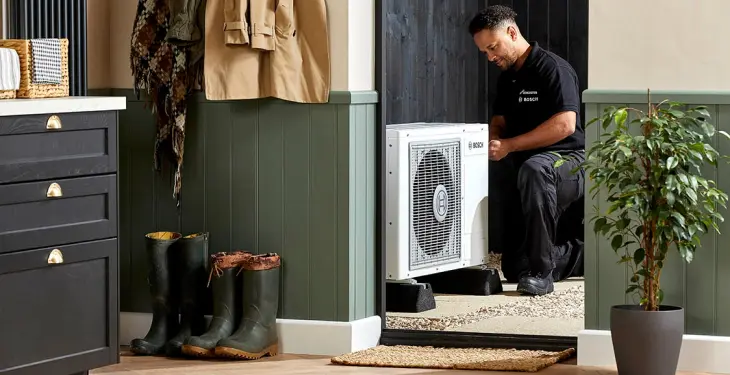Updated: 30th May, 2025

As an online boiler installation company, we are committed to helping our customers save money on their energy bills while keeping their homes comfortable.
Try a new boiler quote, save up to £340 per year (0% APR available).
With the summer season in full swing, it's the perfect time to share valuable energy-saving tips, including the benefits of upgrading to a new boiler.
Get a quote in 60 seconds, fitted as fast as next day!
0% APR finance available.
By implementing these strategies, you can reduce your energy consumption, lower your carbon footprint, and enjoy significant savings.
Take control of your cooling costs by optimising your thermostat settings. Set your thermostat to a higher temperature when you're away from home or during the night when temperatures are naturally cooler.
Consider investing in a programmable or smart thermostat that allows you to create customised schedules and control your cooling system remotely.

Harness the power of natural breezes by opening windows and doors during the early morning and late evening when temperatures are lower.
This natural ventilation helps cool down your home without relying heavily on air conditioning. Just remember to close them once the outdoor temperatures rise to prevent warm air from entering.
Consider upgrading your outdated air conditioning system to a new, energy-efficient model. Look for units with a high Seasonal Energy Efficiency Ratio (SEER) rating, as they cool your home effectively while consuming less energy, resulting in substantial cost savings over time.
Regular maintenance of your air conditioning system is crucial for optimal performance and energy efficiency. Clean or replace air filters monthly to ensure proper airflow and reduce strain on the system.
Schedule annual professional maintenance to check for refrigerant leaks, clean coils, and address any potential issues that could lead to decreased efficiency.
Utilise ceiling fans and portable fans to create a wind-chill effect, making you feel cooler without significantly lowering the temperature. By using fans in conjunction with your air conditioning system, you can raise the thermostat setting by a few degrees, resulting in energy savings.
Reduce heat gain from the outside by closing curtains, blinds, or shades during the hottest parts of the day to block out sunlight and reduce heat transmission.
Use reflective window films or shades to further decrease heat gain. Additionally, minimise the use of heat-generating appliances like ovens, dryers, and dishwashers during peak heat hours.
Swap out traditional incandescent light bulbs with energy-efficient LED or CFL bulbs. These bulbs produce less heat and consume significantly less energy. Turn off lights when not in use to further reduce energy waste.
Maximise natural shade around your home to reduce heat gain. Plant trees strategically around your property to provide shade and cool your home naturally. Install awnings, pergolas, or patio covers to shade windows and outdoor living spaces.
Proper insulation and sealing are essential for maintaining a comfortable indoor temperature and reducing energy waste. Insulate walls, attics, and crawl spaces to prevent cool air from escaping and hot air from entering.
Seal air leaks around windows, doors, and ductwork to enhance energy efficiency.
Consider upgrading your boiler to maximise energy savings, even during the summer months. New boilers are designed for maximum efficiency, providing consistent heat while reducing energy waste. They operate at higher efficiency levels, resulting in significant cost savings on your heating bills throughout the year.
Naturally, the newer a central heating system, the more efficient it is due to engineering and design progression. Outdated or failing systems could be the reason for your shock when seeing your monthly energy bills.
Most UK boilers are running at 80% energy efficiency with some antiquated models operating at 60% or less! These sub optimal levels of output are as avoidable as they are shocking.
Age of Boiler | Efficiency Percentage | Efficiency Rating (ErP) |
0+ Years | 90% + | A |
10+ Years | 85% + | B/C |
15+ Years | 80% + | C/D |
20+ Years | 70% + | E/F |
25+ Years | 60% + | G |
The direct correlation between a boiler’s age and its efficiency is clear to see in the newer systems’ ErP, so it may be worth upgrading your model to an energy efficient boiler.
A high level boiler shouldn't be looked at as an expense, but as mentioned above, an investment that will save you money in the long run.
New boilers are designed to last longer than older models. This means you won't need to replace your boiler as often, which can save you money in the long run.
If you choose a cheaper ‘budget’ appliance to save on initial costs the chances are you could end up paying more in maintenance and repair fees due to inadequate design and poor performance.
Vaillant boilers come with advanced controls that allow you to set your heating and hot water schedules to suit your needs. This means you can heat your home and hot water only when you need it, rather than wasting energy on heating an empty house or hot water tank.
New boilers are often better insulated than older models, which can help prevent heat loss and improve overall efficiency.
A smart thermostat is a device that connects your boiler and heating system to the internet, allowing you to control your heating remotely from your mobile phone or laptop.
So long as you have internet access, you can control the temperature, turn your boiler on and off and schedule it to come on when you like- all from wherever you are.
Smart thermostats can come with dial or button features and are very straightforward in terms of use, for advanced settings instructions will be in the user manual or manufacturer website.
They are also capable of learning your routine and controlling your heating around it.
It's worth noting that all our best combi boilers are compatible with smart thermostats.
Get a quote in 60 seconds, fitted as fast as next day!
0% APR finance available.
Heating and cooling systems generally consume the most energy, especially in homes with poor insulation or inefficient boilers/air conditioners. Appliances like old refrigerators or dryers can also waste substantial energy if outdated or left running longer than necessary.
1. Insulate or upgrade insulation to keep heat in during winter and out in summer. 2. Use LED bulbs instead of incandescent lights. 3. Unplug unused electronics (or use smart power strips) to avoid standby power draw. 4. Service your boiler or HVAC system regularly for optimal efficiency. 5. Wash clothes at lower temperatures and air-dry whenever possible.
A setting of around 24–26°C (75–78°F) is often recommended for air conditioning. This keeps the room comfortable without spiking energy consumption. Every degree lower can increase cooling costs by up to 10%.
It depends on your home’s cooling habits. If you rely heavily on air conditioning, your electricity usage may remain high or even climb. In cooler regions where AC use is minimal, overall energy consumption often drops in summer compared to winter heating demands.
Generally, no. It’s more efficient to heat your home only when needed. Leaving the heating on low continuously can waste energy, especially if the property isn’t well-insulated. A timed or programmable thermostat is better for cost savings.
Air conditioners or large fans can be the biggest summer electricity users. Additional factors include running large appliances (like washing machines or dishwashers) more frequently or using dehumidifiers in humid climates.
High-power or always-on appliances typically top the list—think heating/cooling systems, large fridges, tumble dryers, and standby modes on multiple electronics. Focusing on these devices can yield the biggest energy savings.


07th October, 2025
The F29 Vaillant fault code is a frustrating problem that can cause your boiler to shut do...
 Read Article
Read Article

07th October, 2025
Experiencing issues with your radiators not heating up can be attributed to various factor...
 Read Article
Read Article

07th October, 2025
Regular maintenance is essential for a heat pump's longevity. Replacing dirty filters and...
 Read Article
Read Article